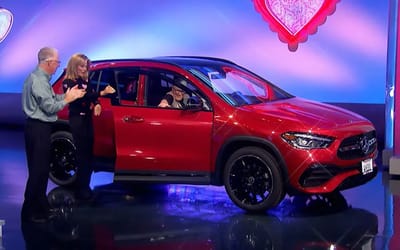This is the best way to improve your miles per gallon and it's not by following common myths
Published on Nov 15, 2025 at 8:11 PM (UTC+4)
by Henry Kelsall
Last updated on Nov 13, 2025 at 5:25 PM (UTC+4)
Edited by
Mason Jones
Improving the miles per gallon (MPG) of our cars is something many of us have wanted to do.
Doing so will increase the mileage and efficiency of our car, while also ensuring we don’t need to pay to refuel it as quickly.
There have been various myths over the years that have suggested ways our cars can become better on MPG, but not all of them have worked out.
However, some ways go against the common myths that allow us to really improve the miles per gallon of our cars.
DISCOVER SBX CARS: The global premium car auction platform powered by Supercar Blondie
Ease off the throttle to improve miles per gallon
One of the easiest things we can do is to ease off the throttle when we are driving.
It is so easy to use all the power possible in a car to get up to speed on whichever road we are using.
But taking it steady on the loud pedal can really help improve things massively.
The less acceleration we do, the better.
Some reports have even suggested that we can save up to 30 percent more fuel by driving at 55mph, not 75mph.

If your car has it, using cruise control can also help.
Cruise control keeps the speed constant with minimal throttle input, and thus it can save fuel.
But these aren’t the only things we can do to save on gas and increase our MPG.
Look after your car for increased MPG
Regular maintenance can also help with a car’s fuel economy.
Keeping the tires at the correct temperature can prevent a loss of 0.2 percent of gas mileage.
This happens for every 1psi drop in the tires, according to the Department of Energy.
Faulty oxygen sensors on some cars can even affect gas mileage by up to 40 percent.

Other factors can also be at play.
So the best thing to do is keep your car in as good health as possible.
Logging the mileage of a car and reviewing it after each drive is another good idea.
This can give you a better understanding of your MPG and how much fuel you’ve used.
So, taking the advice above could be the difference between stopping for gas sooner, or making it through the week on the same tank.
Henry joined the Supercar Blondie team in February 2025, and since then has covered a wide array of topics ranging from EVs, American barn finds, and the odd Cold War jet. He’s combined his passion for cars with his keen interest in motorsport and his side hustle as a volunteer steam locomotive fireman at a leading heritage steam railway in England.




